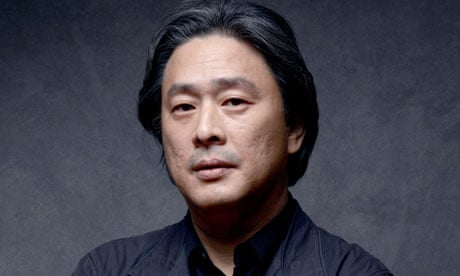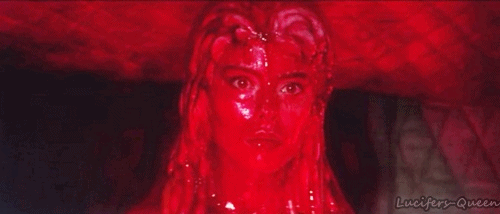G
Guestx
Guest
NOTE to NON-MEMBERS: Interested in joining the SHERDOG MOVIE CLUB? Shoot me a PM for more info.
Thanks to @MusterX, we walked the path of the Korean undead this week. And so we'll be discussing Park Chan-wook's. . .


One of the most popular filmmakers in his native South Korea, PARK CHAN-WOOK is a director, screenwriter, producer and former film critic.
He studied philosophy at Sogang University in Seoul, and while a student there he started a film club. It was his original intention to be a critic and he published several pieces on contemporary cinema, but after seeing Vertigo he resolved to make films of his own.
Park's debut feature, The Moon Is. . . the Sun's Dream, was released in 1992. It took five years before he was able to release his second feature film, Trio. It wasn't until 2000, however, when he released Joint Security Area that he found both critical and commercial success, with the film going on to become the most watched film of all time in South Korea.
After Joint Security Area he went on to make Sympathy for Mr. Vengeance and Oldboy, the latter winning the Grand Prix at the 2004 Cannes Film Festival.
He has listed Sophocles, Shakespeare, Kafka, Dostoevsky, Balzac, and Kurt Vonnegut as being influences on his career.
In 2013, Park released his first English-language film, Stoker. In 2016, he released his most recent film, The Handmaiden, which currently has a 94% on Rotten Tomatoes.
Song Kang-ho: http://www.imdb.com/name/nm0814280/?ref_=tt_cl_t1

Kim Ok-bin: http://www.imdb.com/name/nm1982607/?ref_=tt_cl_t2

Premise: Through a failed medical experiment, a priest is stricken with vampirism and is forced to abandon his ascetic ways.
Budget: ?
Box Office: $13 Million (worldwide)
* The first mainstream Korean film to feature full-frontal male nudity.
* The original Korean title directly translates to "Bat."
* The film won the Grand Jury Prize at the 2009 Cannes Film Festival.

Members: @shadow_priest_x @europe1 @EL CORINTHIAN @HUNTERMANIA @iThrillhouse @DaDamn @chickenluver @jeicex @MusterX @BeardotheWeirdo @In The Name Of @Coolthulu @AndersonsFoot
Thanks to @MusterX, we walked the path of the Korean undead this week. And so we'll be discussing Park Chan-wook's. . .

Director Bio

One of the most popular filmmakers in his native South Korea, PARK CHAN-WOOK is a director, screenwriter, producer and former film critic.
He studied philosophy at Sogang University in Seoul, and while a student there he started a film club. It was his original intention to be a critic and he published several pieces on contemporary cinema, but after seeing Vertigo he resolved to make films of his own.
Park's debut feature, The Moon Is. . . the Sun's Dream, was released in 1992. It took five years before he was able to release his second feature film, Trio. It wasn't until 2000, however, when he released Joint Security Area that he found both critical and commercial success, with the film going on to become the most watched film of all time in South Korea.
After Joint Security Area he went on to make Sympathy for Mr. Vengeance and Oldboy, the latter winning the Grand Prix at the 2004 Cannes Film Festival.
He has listed Sophocles, Shakespeare, Kafka, Dostoevsky, Balzac, and Kurt Vonnegut as being influences on his career.
In 2013, Park released his first English-language film, Stoker. In 2016, he released his most recent film, The Handmaiden, which currently has a 94% on Rotten Tomatoes.
Our Stars
Song Kang-ho: http://www.imdb.com/name/nm0814280/?ref_=tt_cl_t1

Kim Ok-bin: http://www.imdb.com/name/nm1982607/?ref_=tt_cl_t2

Film Overview and YouTube Videos
Premise: Through a failed medical experiment, a priest is stricken with vampirism and is forced to abandon his ascetic ways.
Budget: ?
Box Office: $13 Million (worldwide)
Trivia
(courtesy of IMDB)
(courtesy of IMDB)
* The first mainstream Korean film to feature full-frontal male nudity.
* The original Korean title directly translates to "Bat."
* The film won the Grand Jury Prize at the 2009 Cannes Film Festival.

Members: @shadow_priest_x @europe1 @EL CORINTHIAN @HUNTERMANIA @iThrillhouse @DaDamn @chickenluver @jeicex @MusterX @BeardotheWeirdo @In The Name Of @Coolthulu @AndersonsFoot
Last edited by a moderator:












